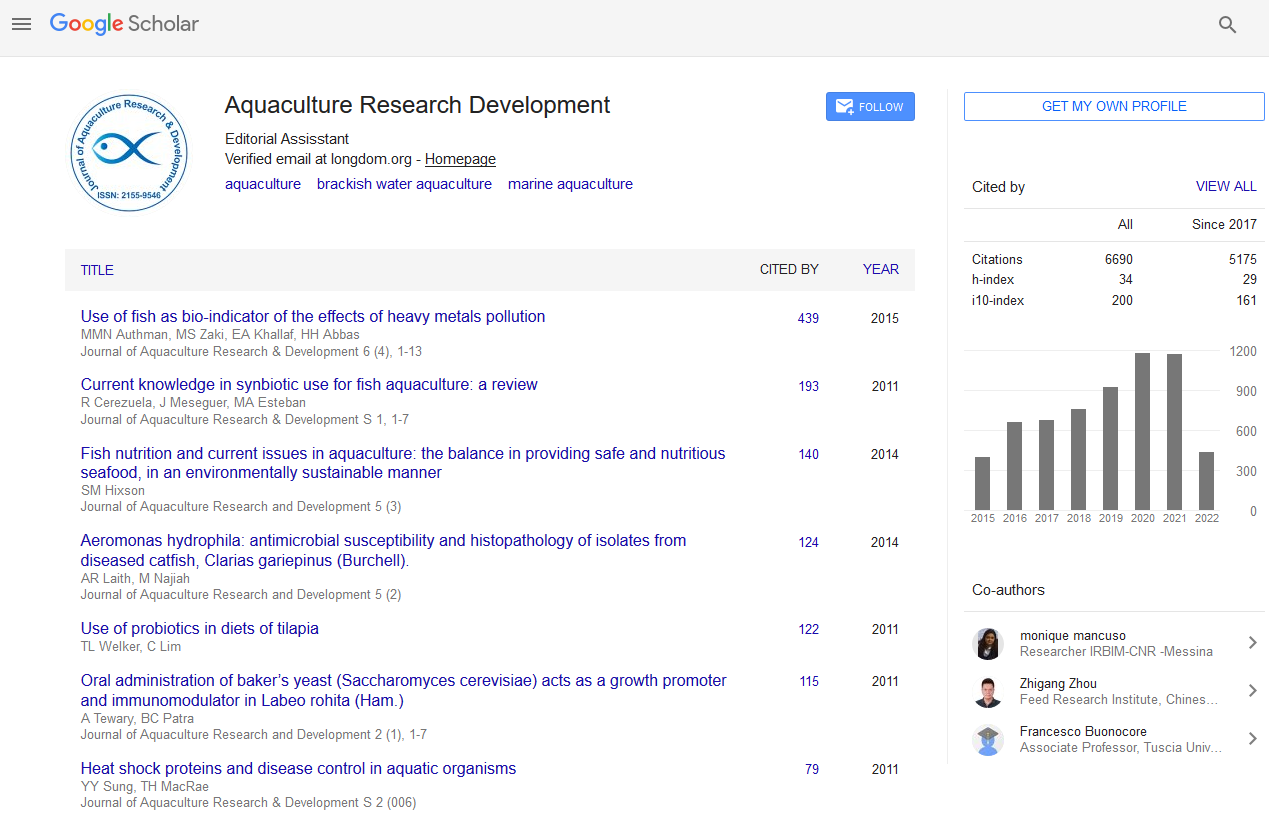PMC/PubMed Indexed Articles
Indexed In
- Online Access to Research in the Environment (OARE)
- Open J Gate
- Genamics JournalSeek
- JournalTOCs
- Scimago
- Ulrich's Periodicals Directory
- Access to Global Online Research in Agriculture (AGORA)
- Electronic Journals Library
- Centre for Agriculture and Biosciences International (CABI)
- RefSeek
- Directory of Research Journal Indexing (DRJI)
- Hamdard University
- EBSCO A-Z
- OCLC- WorldCat
- Scholarsteer
- SWB online catalog
- Virtual Library of Biology (vifabio)
- Publons
- MIAR
- University Grants Commission
- Euro Pub
- Google Scholar
Useful Links
Share This Page
Journal Flyer

Open Access Journals
- Agri and Aquaculture
- Biochemistry
- Bioinformatics & Systems Biology
- Business & Management
- Chemistry
- Clinical Sciences
- Engineering
- Food & Nutrition
- General Science
- Genetics & Molecular Biology
- Immunology & Microbiology
- Medical Sciences
- Neuroscience & Psychology
- Nursing & Health Care
- Pharmaceutical Sciences
Abstract
A Review of the Science and Technology Developments in Zambia’s Aquaculture Industry
Sahya Maulu, Brian Pelekelo Munganga, Oliver Jolezya Hasimuna, Lloyd Haninga Haambiya and Bornwell Seemani
The application of science and technology developments in aquaculture is very crucial for the sustainable development of the industry. This paper provides an overview of the current developments in science and technology used in Zambia’s aquaculture industry. Various developments particularly in aquacultural species and culture models, aquaculture production systems, fish feeds and nutrition, water environmental management, and fish health and disease management have been discussed. While some breakthroughs in science and technology have been presented, the review has indicated that the country’s aquaculture industry is still lagging behind in some critical areas as the majority of producers are still using traditional technologies which have made it difficult for them to make significant contributions to fish production. As a result of this lag and other reasons, the country has witnessed an unprecedented importation of fish to meet the deficit and the ever-increasing demand. Therefore, efforts to accelerate and sustain aquaculture industrial development in Zambia must address such areas of science and technology as fish genetic breeding and improvements, fish health and disease management, sustainable feeds and nutrition, production systems, and water environmental management


